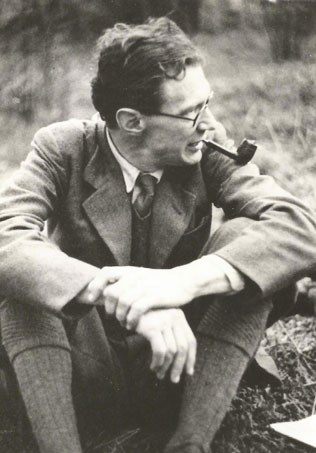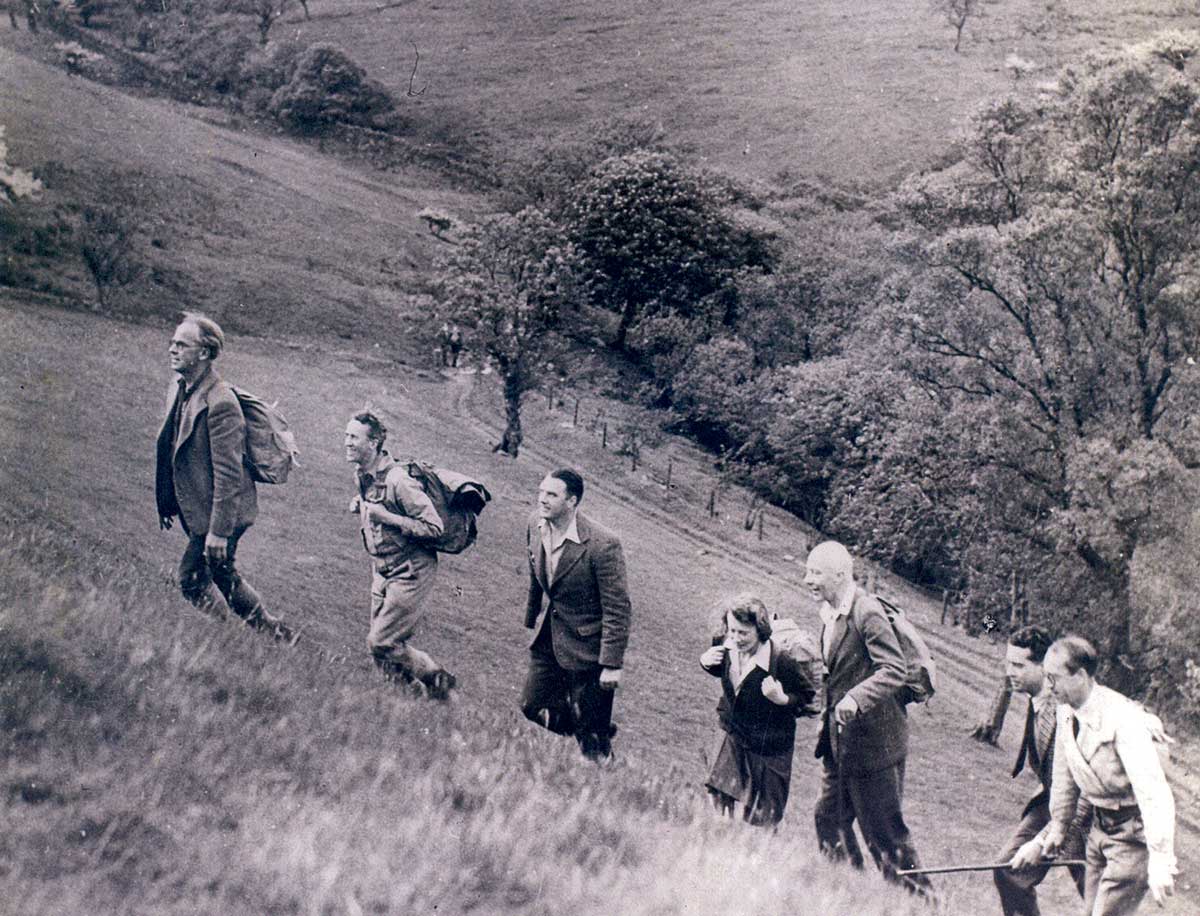The right to roam debate
Historians often draw parallels between present-day situations and past events. In this respect, I am no exception.
The debate over the Right to Roam has intensified in 2024 after Alexander Darwell, a wealthy landowner in Dartmoor, appealed to the Supreme Court on October 8 regarding public access rights to his land within the National Park, which he has owned since 2011.
He asserts that as a landowner, he has the right to limit recreational activities on his property to walking and riding without stopping. This restriction would ban activities such as picnics, bird watching, drawing, painting, fishing, swimming, bicycling, and camping on the National Park. Nevertheless, he has proposed that an annual fee for camping could be paid to him through the government for his approval.
Many opponents of Darwell have cited legislation that guarantees public access as enshrined in the byelaw, specifically through the Dartmoor Commons Act 1985 and the Countryside and Rights of Way Act 2000.
The Dartmoor Commons Act allowed through historic custom open access "to all the commons on foot and on horseback for the purposes of open-air recreation".- 1865 - Commons, Open Spaces and Footpaths Preservation Society established
- 1897 - RSPB
- 1895 - National Trust
- 1912 - Society for the Promotion of Nature Reserves
- 1935 - Ramblers Association
- Five of the leaders, including Benny were imprisoned for between 2 and 6 months.
- Public opinion was firmly on their side following the harsh sentences and the incident led to many government reviews including the Dower report in 1945, the Hobhouse report in 1947, and latterly the National parks and access to the Countryside act 1949 (which created our National parks).
"We ramblers, after a hard week’s work, in smoky towns and cities, go out rambling for relaxation and fresh air. And we find the finest rambling country is closed to us… our request, or demand, for access to all peaks and uncultivated moorland is nothing unreasonable".
Participants in the Mass Trespass believed that class played a crucial role in limiting access to the countryside.
Musician Ewan MacColl "felt very powerfully that access to the countryside was a birthright which had been denied to working class people by industrialisation and capitalism".
(Ben Harker, Class Act: The Cultural and Political Life of Ewan Maccoll).
John Dower A.R.I.B.A M.T.P. I in his report of 1945 stated clearly that the National parks were created for the full recreational enjoyment of the public at large and were not to be restricted to a privileged minority.
"The next requirement of my definition is that National Parks should be in a true and full sense national, if they are to be worthy of their name and purpose. This does not mean that local interests are to be disregarded. On the contrary, the well-being of those who live and work within them must always be a first consideration. But it does mean that their holiday and recreational use should be for people - and especially young people - of every class and kind and from every part of the country, indeed the world. National Parks are not for any privileged or otherwise restricted section of the population, but for all who care to refresh their minds and spirits and to exercise their bodies in a peaceful setting of natural beauty. Few national purposes are more vital or more rich in promise of health and happiness than the provision, first, of general and generous opportunity for holidays and second, of large , open and beautiful tracts of country in which holidays can be freely and inexpensively enjoyed".
The Dower report was well received and in July 1947 was followed by the Ministry of Town & Country Planning report of National Parks committee, known as the Hobhouse report after Sir Arthur Hobhouse (Chairman).
"Four-fifths of the population dwell in urban areas, many of them in the smoke-laden atmosphere and amid the ceaseless traffic and bustle of our industrial towns and larger cities. They need the refreshment which is obtainable from the beauty and quietness of unspoilt country. Since, therefore, it is not possible to sterilise great tracts of land, it is all the more urgent to ensure that some at least of the extensive areas of beautiful and wild country in England and Wales are specially protected as part of the national heritage, that their use for popular enjoyment and open-air recreation is encouraged, and that their aesthetic and educational values are recognised by Statute and carry due weight in the inevitable competition with more utilitarian, and sometimes more powerful, claims to the use and development of land.
A progressive policy of Park management will be needed, to make use of the resources of the National Parks for popular enjoyment and open-air recreation. Such a policy must be wisely applied to ensure that the peace and beauty of the countryside, and the rightful interests of the resident population, are not menaced by an excessive concentration of visitors, or disturbed by incongruous pursuits. There must be more holiday accommodation, including carefully placed and well designed hostels and sites for tents and caravans, so as to bring visitors within reach of the attractions of the Parks without overcrowding.
For the motorist there should be good roads, but not speedways. There must be ample provision of footpaths to take walkers through the valley farmlands or young plantations without risk of trespass or damage; there must be free access for ramblers on the mountains and moorlands; wild life and features of special interest should be protected; and country sports and pursuits (such as fishing, riding, sailing or the study of Nature) should, where circumstances allow, be made available to all who would find in them a source of health and refreshment, a new sense of adventure and an escape from the routines of their working life".
Lord Strang, Chairman of the National Parks Commission in 1957 stated:
"The designation of Dartmoor as a National Park marked it out as one of Britain's finest landscape areas, a national asset whose unique and characteristic natural beauty must be protected from spoliation and preserved for the enjoyment of the nation.
It has often seemed that too few of those who visit Dartmoor are aware that it is one of our best scenic areas and that too few seek the inspiration and relaxation which are to be found in its fine wooded valleys, its wide upland landscape, its relics from men's remote past and its many other attractions for rider and walker alike".
Even more interesting is the support for all manner of outdoor recreational activity including camping.
Sir Henry Slesser, writing in 1957 as Chairman of the Dartmoor National Park Committee explained:
" It was under the National Parks and Access to the Countryside act 1949 that the Dartmoor National Park was designated in 1951 and a special standing committee of the Devon County Council was subsequently set up to carry out the objects of the Act within the National Park. The primary purpose of the Committee, as stated in the Act, acting in consultation with the National Park Commission, is 'to preserve the natural beauty of the district and give opportunities for open air recreations'. We are required, among other matters, to formulate proposals as to the action to be taken to achieve the objects of the National Park, in particular to deal with accommodation, camping sites, parking places and access to the open country. The problem of access is not a difficult matter in this instance since, by long-standing custom, persons may wander at will over Dartmoor's open country and it has not, up to the time of writing, been considered necessary or advisable by my Committee to seek Access Agreements with the owners concerned".
(Page x & xi Dartmoor National Park, National Park Guide No. 1 HMSO 1957)
J.V. Elmhirst provided useful information relating to recreational activities on Dartmoor in the first government produced guide book stating:
"Bathing is a matter of finding the pool that suits you.
Fishing. Those who wish to fish within the National Park are advised to make enquiries within the locality in which they are staying.
Riding is available at some hotels and there are riding stables. Those wishing to ride should make enquiries locally.
Walking on Dartmoor. No better guidance can be given than by William Crossing in his Guide to Dartmoor".
Probably the most detailed historical reference I have found regarding the use of the National parks for 'camping' by the public is on pages 37 and 38 of the Hobhouse report (1947).
" Camping will bring National Park holidays within the reach of many people, and especially young people, who might otherwise be kept from their enjoyment by lack of money or the insufficiency of permanent accommodation.
Moreover camping is an adventure in itself which has the greatest educational value, in developing qualities of self-reliance and initiative, in bringing campers into close touch with Nature, and in opening to them a way of escape from the cares and complexities of everyday existence into the simple life of the nomad".
For many, Dartmoor and wild camping have long been synonymous with the Ten Tors challenge, established in the 1950s by three British Army officers. They, identified as Dower and Hobhouse had, that wild country areas were beneficial to the youth.
"In September 1959 three British Army officers from the Junior Leaders Regiment, Royal Corps of Signals (based at Denbury Camp near Newton Abbot) were monitoring an adventure training exercise for their young trainees on Dartmoor. Returning at night to their own campsite near Sittaford Tor, Colonel Gregory, Major Parker and Captain Joyner commented on the trainees’ enthusiasm as they tackled the challenges of navigating, bivouacking, and field cooking in wild country. Why should such activities, they asked, be confined to Junior Leaders? Why not also to less privileged young civilians?"





Comments